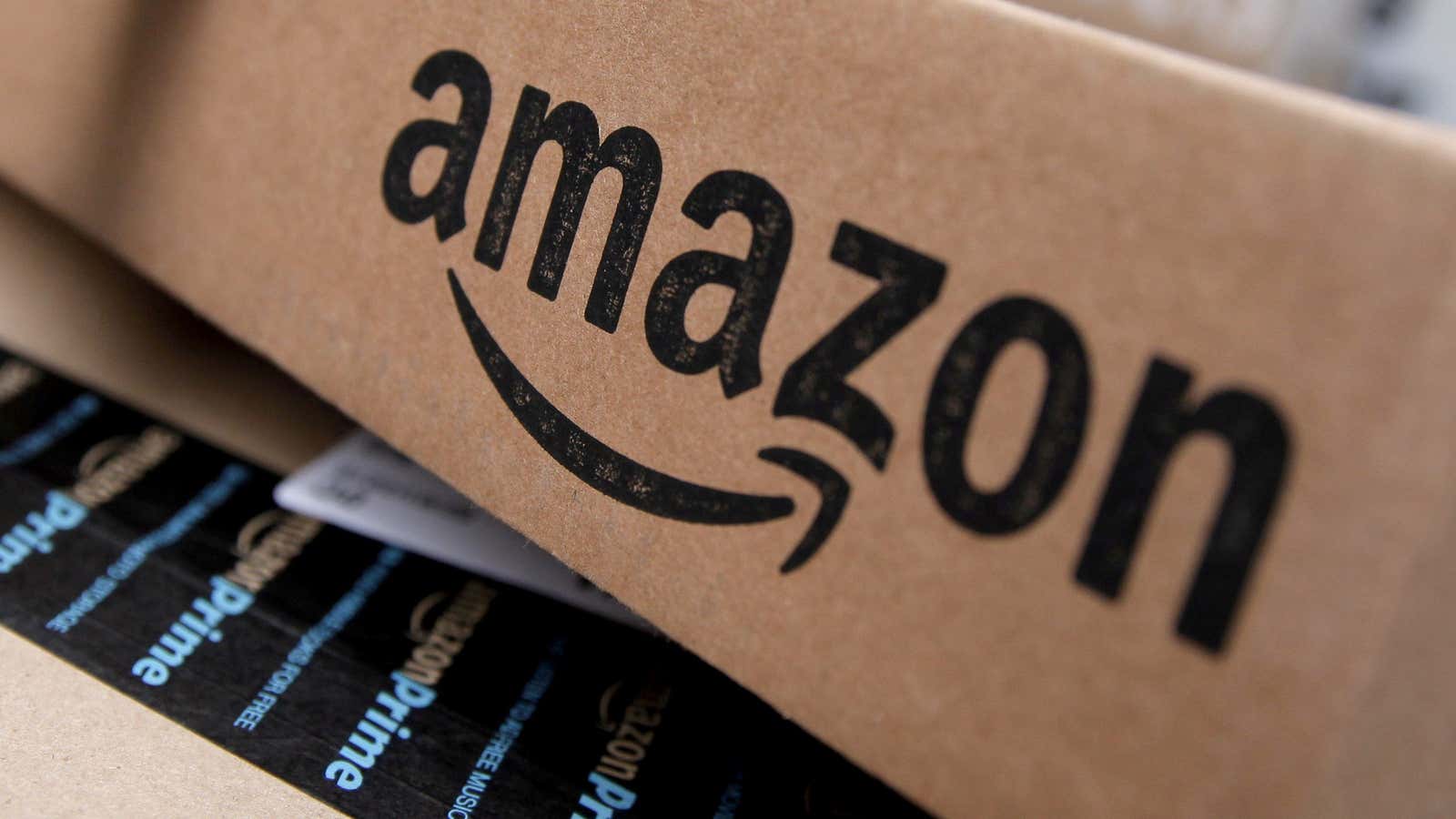About a month ago, Selz, an Australian tech company, quietly announced it was being acquired by Amazon. Selz helps businesses set up and manage online stores without needing much technical expertise. In that regard its similar to Shopify, the fast-growing platform powering the e-commerce of an increasing number of small and large companies.
Juozas Kaziukenas, founder and CEO of Marketplace Pulse, an e-commerce research firm, spotted the Selz announcement and posed the question on Twitter yesterday: “Is this a step for Amazon competing with Shopify?”
The answer has potentially large ramifications. Shopify is estimated to be the second-largest e-commerce platform in the US, behind only Amazon. The company has positioned itself as a counterbalance to Amazon’s dominance, allowing budding entrepreneurs to set up their own shops and sell to customers directly rather than having to default to putting their wares on Amazon’s massive marketplace. Buying Selz looks like Amazon is gearing up to fight back against one of its few serious rivals.
Though it founded its empire selling consumer goods of all sorts, Amazon has been growing its revenue from services. Among its more profitable segments is Amazon Web Services, or AWS, which offers businesses access to cloud-based IT infrastructure. It’s the division built by the company’s soon-to-be new CEO, Andy Jassy. Amazon also earns money through the fees it charges sellers for its Fulfillment by Amazon (FBA) services, and through its soaring advertising business. A division aimed at offering small entrepreneurs the infrastructure they need to launch their own online stores, likely with ties to Amazon’s marketplace, could fit neatly alongside these.
In fact, Amazon has had the idea before. In 2006, at the same time it introduced FBA, it launched Webstore, allowing retailers “to create their own privately branded e-commerce websites using Amazon technology.” It even updated the service in 2010. But in 2015, as competitors such as Shopify and Bigcommerce were rapidly growing, Amazon shut it down without providing a full explanation. It worked with customers to transition their stores to other services, including Shopify.
Selz the company was founded in Sydney in 2013 and has opened an office in Manila as well. It has fewer than 50 employees, according to its LinkedIn page. Amazon confirmed its purchase of the company to Quartz but did not provide any details on its plans for Selz. One possibility is Amazon bought the company for its talent and intellectual property rather than to grow it as an individual brand, though in its announcement of the Amazon deal, it assured customers nothing would immediately change.
Amazon has never shied from facing competitors head-on, as it infamously did with Diapers.com. Shopify is only getting bigger, and with the pandemic supercharging e-commerce’s growth, Amazon may have seen an opportunity to make sure it was capturing as great a share as possible, whether the sales are happening directly on its site or not.
